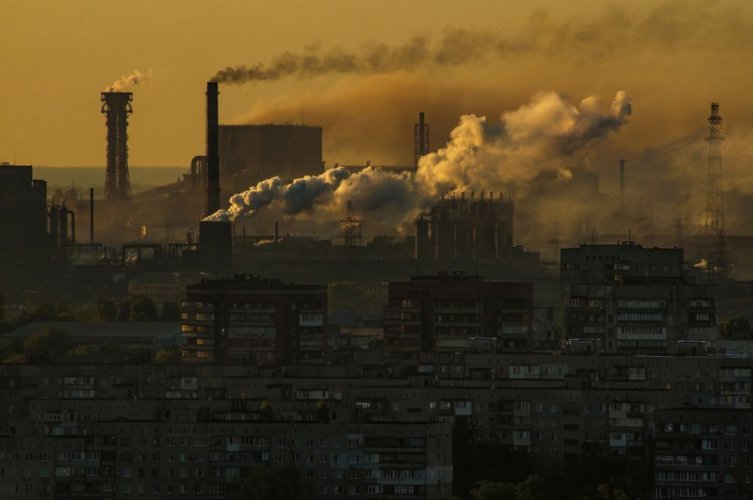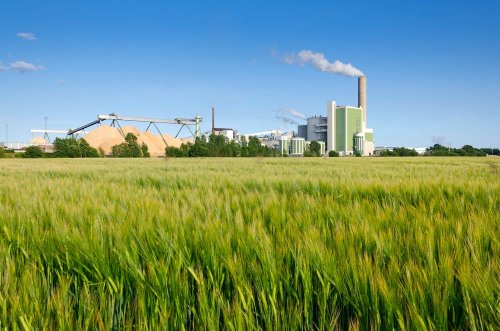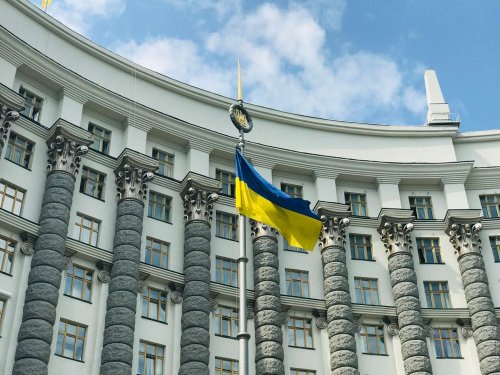The European Business Association (EBA) called for finalization of the consolidated draft law on industrial pollution control before it is put to a vote in the Verkhovna Rada.
The document takes into account previous proposals and comments, contains a number of positive provisions, as well as ambiguous points, reports EBA.
On Wednesday, December 28, the Committee on Environmental Policy and Nature Management will consider for the first time draft law No. 6004-d in the field of industrial pollution control, which is a consolidated version 3 "pre-war" draft laws No 6004, 6004-1 and 6004-2.
The material explained that in all these documents are aimed at implementing the provisions of Directive 2010/75/EC on industrial emissions.
The authors emphasized that draft law No. 6004-d provides for a transition period for the energy sector in accordance with the National Plan for the Reduction of Emissions from Large Combustion Plants (NPSV), as well as the implementation of the conclusions The best available technologies and management methods (BATM) no earlier than 4 years after the end of martial law, etc.
"A positive point is the presence of a proposal for a financing mechanism and state support for enterprises implementing BATM. However, it would be expedient to provide for a separate procedure for providing such assistance at the level of the Cabinet of Ministers," they added.
The reform will allow enterprises to receive a single integrated permit, which will replace three:
- on emissions of polluting substances into the atmospheric air;
- for special water use, as well as discharge into centralized water drainage systems;
- waste management.
"In addition, the current environmental regulations will be replaced by the conclusions of the best available technologies and management methods (BATM) along with new recommended technologies and the permissible volumes of industrial pollution determined on their basis," the authors emphasized.
According to EBA experts, the following provisions need to be revised:
- Issuance of an integrated permit in the absence of BATM
Such a permit is proposed to be issued in accordance with BATM, which the Ministry of Environmental Protection and Natural Resources determines on the basis of criteria similar to the definition of BATM, and environmental regulations.
"Environment actually gets the right to use the requirements of the BATM conclusions until the moment of their approval," the article emphasized.
The authors added that the operator who carries out the construction of the installation, for which BATM has not been approved at the time of his submission of the application for obtaining an integrated permit, will not understand whether his equipment meets the requirements of BATM determined by the Ministry of Environment.
- Updating the terms of the integrated license
"It is assumed that the Ministry of Environment can be the initiator of updating the conditions of the integrated permit, and the operator is obliged to accept this initiative, otherwise his permit can be canceled by the Ministry of Environment out of court. At the same time, it is not clear what the terms of these changes should be," the authors noted.
They emphasized that this raises concerns for businesses, because there may be deadlines in which it is impossible (for technical, physical or other reasons) to fulfill the requirements for making changes to the integrated permit. In addition, this approach does not comply with Directive 2010/75/EC, which requires the installation operator to submit all information necessary for the purpose of reviewing the conditions of the permit.
- Integrated permit for installations with a limited operational life
"For installations that are economically impractical or impossible to modernize, and that have a limited service life – up to 10 years, the integrated permit will be based on current emission standards, not on BATM," the material says.
It is noted that at the same time the permit conditions for energy sector enterprises are determined in accordance with the BATM, and for other industries, a term of no more than 10 years is established from the moment the Law comes into force, i.e. approximately 2034. However, for a significant number of enterprises, such a term is critically short and needs to be significantly increased, for example to 20 years.
The authors also suggest setting deadlines separately for each operator (without setting a possible deadline), based on individual characteristics and taking into account:
- impact of war;
- the difficult financial condition of Ukrainian industry;
- lack of opportunity to attract financing;
- terms of modernization, in accordance with the enterprise's investment plan;
- the need to build completely new installations, rather than renew existing ones.
The authors pointed out the risk that the environmental regulations that will be in effect at the time of the implementation of the draft law will not be current, but prospective, that is, those that the company must reach after a certain number of years.
"It is logical that the current technological standards should be extended until the entry into force of the BATM," they emphasized.
- Terms
"The conclusions of the BATM shall enter into force no earlier than 2028, and the maximum grace period is 7 years from the date of entry into force of the BATM, i.e. no earlier than 2035," the EBA explained.
The article emphasized that it is not logical to obtain an integrated permit in a special order for installations that have a limited period of operation, since such a period is shorter than the period of introduction of the NDTM together with a derogation.
- Monitoring requirements
It is noted that the proposed requirements for monitoring emissions, land and groundwater pollution are somewhat contrary to the law "On Protection of Atmospheric Air".
The authors propose to include monitoring in the field of atmospheric air protection as part of the state environmental monitoring system, and to define its regulation in a separate order.
Earlier, EcoPolitic wrote, that the team of the Ministry of Environmental Protection and Natural Resources together with Ukrainian and international experts is preparing alternative draft law on prevention of industrial pollution.
As EcoPolitic previously reported, in Ukraine, out of numerous government initiatives regarding the deregulation of business in the field of environmental protection, adopted during martial law, only two actually work.





